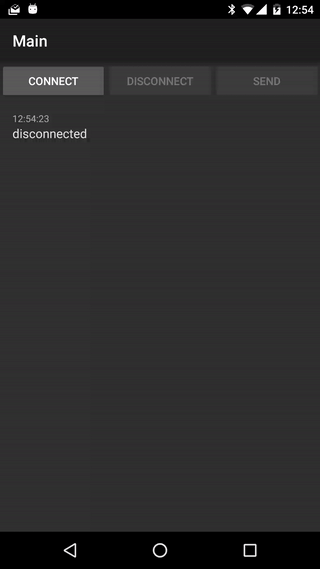JavaWebsocketClient is library is simple library for Websocket connection in rx for java and Android. It is designed to be fast and fault tolerant.
Currently we use okhttp3 for websocket connection because okhttp3 is simple and well tested solution.
- Example websockets server python twisted server
- Rx-java websocket client library
websockets-rxjava/ - Rx-java websocket android example
websockets-rxjava-example/
How to connect to server:
final Request request = new Request.Builder()
.get()
.url("ws://10.10.0.2:8080/ws")
.build();
final Subscription subscribe = new RxWebSockets(new OkHttpClient(), request)
.webSocketObservable()
.subscribe(new Action1<RxEvent>() {
@Override
public void call(RxEvent rxEvent) {
System.out.println("Event: " + rxEvent.toString());
}
});
Thread.sleep(10000);
subscribe.unsubscribe();Send message on connected:
final Subscription subscription = new RxWebSockets(newWebSocket, request)
.webSocketObservable()
.subscribe(new Action1<RxEvent>() {
@Override
public void call(RxEvent rxEvent) {
if (rxEvent instanceof RxEventConnected) {
Observable.just("response")
.compose(RxMoreObservables.sendMessage((RxEventConnected) rxEvent))
.subscribe();
}
}
});
Thread.sleep(1000);
subscription.unsubscribe();For examples look:
- Android example: Activity Presenter
- Example Real tests: RxJsonWebSocketsRealTest, RxWebSocketsRealTest, SocketRealTest
- Unit test
class YourMessage {
public String response;
public String error;
}
final Request request = new Request.Builder()
.get()
.url("ws://10.10.0.2:8080/ws")
.build();
final RxWebSockets rxWebSockets = new RxWebSockets(new OkHttpClient(), request)
final ObjectSerializer serializer = new GsonObjectSerializer(new Gson(), Message.class)
final RxObjectWebSockets webSockets = new RxObjectWebSockets(rxWebSockets), serializer);
final Subscription subscription = webSockets.webSocketObservable()
.compose(MoreObservables.filterAndMap(RxObjectEventMessage.class))
.compose(RxObjectEventMessage.filterAndMap(YourMessage.class))
.subscribe(new Action1<YourMessage>() {
@Override
public void call(YourMessage yourMessage) {
System.out.println("your message: " + yourMessage.response);
}
});
Thread.sleep(1000);
subscription.unsubscribe();To run example first run websocket server, than update url to your host in:
./gradlew :websockets-rxjava-example:installDebugto your gradle file:
repositories {
maven { url "https://jitpack.io" }
}
dependencies {
// snapshot version
compile 'com.github.jacek-marchwicki:JavaWebsocketClient:master-SNAPSHOT'
// or use specific version
compile 'com.github.jacek-marchwicki:JavaWebsocketClient:<look-on-release-tab>'
}Copyright [2015] [Jacek Marchwicki <jacek.marchwicki@gmail.com>]
Licensed under the Apache License, Version 2.0 (the "License");
you may not use this file except in compliance with the License.
You may obtain a copy of the License at
http://www.apache.org/licenses/LICENSE-2.0
Unless required by applicable law or agreed to in writing, software
distributed under the License is distributed on an "AS IS" BASIS,
WITHOUT WARRANTIES OR CONDITIONS OF ANY KIND, either express or implied.
See the License for the specific language governing permissions and
limitations under the License.
